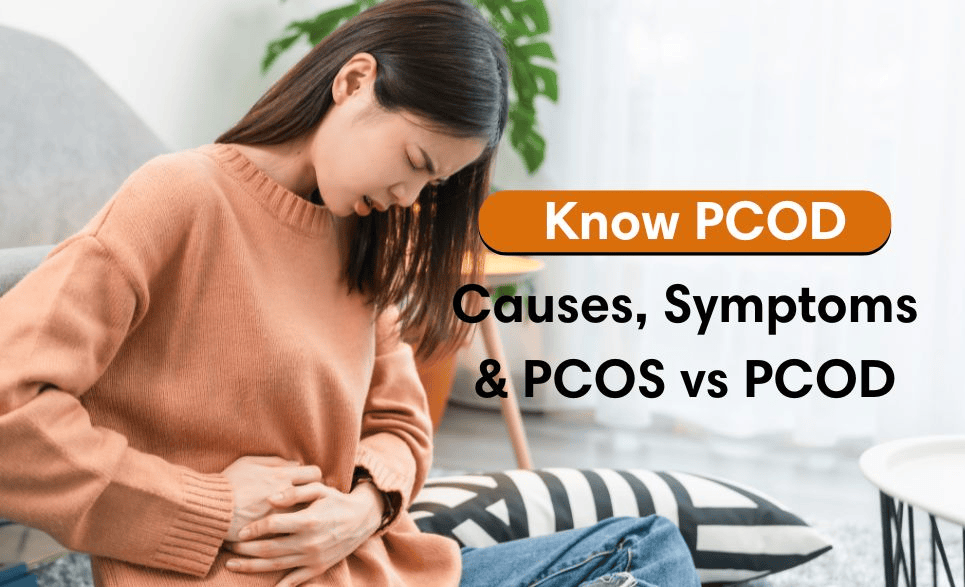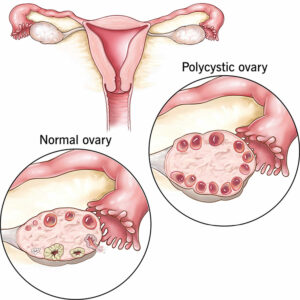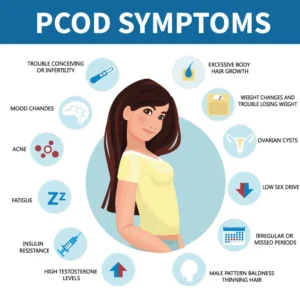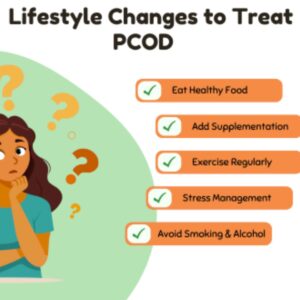What is PCOD Problem in Females? Causes, Symptoms, and Differences from PCOS
Polycystic Ovarian Disease (PCOD) has become one of the most common hormonal disorders affecting women of reproductive age. Many women searching online want to clearly understand the PCOD problem is in females, how it differs from PCOS, what causes it, and how to recognise its symptoms. This comprehensive guide will explain PCOD in an easy-to-read, engaging way while answering the most commonly asked questions.
Introduction: Understanding PCOD in Today’s World
Hormonal balance plays a crucial role in a woman’s overall health, from regulating menstrual cycles to supporting fertility and metabolism. When this delicate balance is disturbed, conditions like PCOD arise. Millions of women today are struggling with irregular periods, unexplained weight gain, and skin or hair changes without realising these are signs of a deeper issue.
So, what is the PCOD problem in females exactly? Let’s break it down in detail.
What is PCOD?
The term PCOD stands for Polycystic Ovarian Disease. It is a condition where the ovaries release a large number of immature or partially mature eggs during ovulation. Over time, these eggs develop into small cysts within the ovaries, resulting in a hormonal imbalance.
Women with PCOD often have enlarged ovaries and higher levels of male hormones (androgens), which can cause visible physical symptoms like acne, excessive hair growth, and weight fluctuations.
In simple terms, what is the PCOD problem in females? It is a lifestyle and hormone-related disorder that affects the ovaries, menstrual cycles, fertility, and even long-term health.
Is PCOD the Same as PCOS?
A common confusion among women is whether PCOD and PCOS are the same thing. While they sound similar, they are not identical.
- PCOD (Polycystic Ovarian Disease): More common, less severe. It is primarily caused by poor lifestyle, unhealthy eating habits, and hormonal imbalance. Women with PCOD can often conceive naturally with proper lifestyle modifications.
- PCOS (Polycystic Ovary Syndrome): A metabolic and endocrine disorder that is more serious. PCOS is linked with long-term health risks such as diabetes, infertility, obesity, and heart disease.
So, to answer clearly: Is PCOD the same as PCOS? No. PCOD is a condition, while PCOS is a more complex syndrome with broader metabolic effects.
What are the Symptoms of PCOD?
Recognising the symptoms early is important for proper management. The symptoms can vary from woman to woman, but the most common include:
- Irregular periods – Missed, delayed, or very heavy menstrual cycles.
- Excessive hair growth (Hirsutism) – On the face, chest, back, or stomach.
- Acne and oily skin – Due to excess androgen levels.
- Unexplained weight gain – Especially around the abdomen.
- Hair thinning – Similar to male-pattern baldness.
- Difficulty conceiving – Because of irregular ovulation.
- Mood swings and fatigue – Hormonal changes affecting mental health.
Thus, when asking what PCOD is problem in females, the symptoms must be clearly understood. If these signs persist, consulting a gynaecologist is essential.
What Causes PCOD?
The exact reason behind PCOD is still unclear, but several contributing factors have been identified. Let’s understand what causes PCOD in detail:
- Genetics: If PCOD runs in the family, the risk is higher.
- Insulin resistance: Excess insulin in the body can increase androgen production.
- Poor lifestyle choices: Unhealthy diet, lack of exercise, and irregular sleep patterns worsen hormonal imbalance.
- Stress and anxiety: Chronic stress disrupts the endocrine system.
- Hormonal disturbances: An imbalance between estrogen and progesterone affects ovulation.
Therefore, what causes PCOD is not just one factor but a combination of lifestyle, genetic, and hormonal influences.
Health Risks Associated with PCOD
While many women think PCOD is only about irregular periods or acne, the truth is it can affect long-term health if ignored. Risks include:
- Infertility or difficulty conceiving.
- Type 2 diabetes due to insulin resistance.
- High cholesterol and heart disease.
- Endometrial cancer risk from irregular ovulation.
- Emotional issues like depression and anxiety.
This is why understanding what PCOD is in females is so crucial—it is not just a cosmetic or menstrual issue, but a condition that affects the whole body.
Lifestyle Management for PCOD
The good news is that PCOD can be managed effectively with lifestyle changes. Unlike PCOS, which often requires more intensive treatment, PCOD responds well to simple modifications such as:
1. Balanced Diet
- Focus on whole grains, fresh fruits, vegetables, and lean protein.
- Avoid processed foods, refined sugar, and junk food.
2. Regular Exercise
- At least 30 minutes of physical activity daily helps regulate hormones and reduce insulin resistance.
3. Stress Management
- Yoga, meditation, and breathing exercises help balance hormones naturally.
4. Adequate Sleep
- Poor sleep increases cortisol levels, which worsen hormonal imbalance.
5. Medical Support
- In some cases, doctors may prescribe medications for regulating periods, managing insulin resistance, or supporting fertility.
Frequently Asked Questions
1. What is the PCOD problem in females in simple words?
It is a condition where the ovaries produce immature eggs that turn into cysts, causing hormonal imbalance, irregular periods, and fertility issues.
2. Is PCOD the same as PCOS?
No. PCOD is a common condition and less severe, while PCOS is a complex syndrome with long-term health risks.
3. What are the symptoms of PCOD?
Irregular cycles, acne, weight gain, excess hair growth, infertility, and mood changes.
4. What is PCOD?
It is a hormonal condition caused by poor lifestyle, genetics, or insulin resistance.
5. What causes PCOD?
A mix of genetic predisposition, hormonal imbalance, stress, and unhealthy lifestyle habits.
Conclusion
To summarise, what is PCOD in females is not just a simple disorder—it is a multifaceted hormonal condition that affects the reproductive system, skin, hair, and overall health. The difference between PCOD and PCOS must be clearly understood, as they are not the same.
Knowing what are the symptoms of PCOD, along with what causes PCOD, empowers women to seek timely medical care and adopt a healthier lifestyle. Early diagnosis and consistent management can prevent complications and improve quality of life.
If you or someone you know experiences irregular cycles, unexplained weight gain, or other symptoms, do not ignore them. Consult a gynaecologist, adopt healthy habits, and take charge of your hormonal health.





